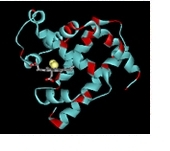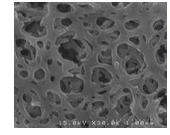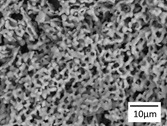Message From the Director
Message from the director
Director, Micro-Nano Technology Research Center &
Professor, Dept. of Chemical Science and Technology,
Hosei University
Takamasa ISHIGAKI
The Micro-Nano Technology Research Center at Hosei University was established in 2003 following the approval of the Ministry of Education, Culture, Sports, Science and Technology (MEXT)'s "High-Tech Research Center" Project for Private Universities. Since then, our Research Center has energetically conducted nanotechnology research from the basic viewpoint that nanotechnology is a fundamental new technology with the potential to break past the limitations posed by conventional techniques. Firmly rooted in the philosophy of Hosei University, "freedom and progress", our focus is centered on three research projects: developing highly functional nano materials and researching micro-nano mechatronic devices, researching distributed environmental nano electronic devices, and researching the nanobiologies of bioinformatics and bodily functions.
In 2008, research on "Developing an intracellular operational technique and bodily function simulated techniques using micro-nanotechnology" was approved by MEXT's Strategic Research Foundation Grant-aided Project for Private Universities. Our research at that time focused on the invention of key nano-bio devices for intracellular operations including the research and development of related systems such as intracellular material transport, intracellular environment observation, and intracellular local material injection.
In 2013, a new research project on "Next-generation energy conversion systems sustaining green technology" was approved by the same NEXT program, Strategic Research Foundation Grant-aided Project for Private Universities. We conducted a 5-year research project on energy creation and environmentally friendly technologies, resource recycling and environmental clean-up technologies, and application of eco-solution technologies for industrial plants.
From 2022, we are carrying out a research project on "3D advanced material processes contributing to the realization of a post-corona sustainable society". We are aiming to maintain a social environment in which humans can live safely and securely by solving energy problems and making effective use of limited resources. We believe this research will significantly contribute to a sustainable world in which the further development of industries and the realization of an enjoyable society can be attained in a balanced manner.
Research results obtained by integrating micro-nano technology obtained over the past 19 years, and effectively utilizing research facilities for students with outstanding potential, will be reflected in education at undergraduate and graduate schools. Through this development, we aim to become the center of the university's science and engineering brand.

Our Objective and Research Projects
Nanotechnology is recognized as including promising new techniques that overcome the limitations posed by the conventional ones. There are plenty of nanotechnology applications currently in use today, such as the composition of ultra-high functional materials, ultrafine fabrication, single-molecular measurement, and single-molecular operation. The High-Tech Research Center Project for Private Universities was drawn up in the 2003 academic year with the goal of developing highly functional nano materials and researching micro-nano mechatronics devices, researching distributed environmental nano electronic devices, and researching the nanobiologies of bioinformatics and bodily functions. To achieve these research goals, we established the Micro-Nanotechnology Research Center and organized a committee that acts in a cross-sectoral manner between the Engineering Faculty and the Graduate School of Engineering. Through this approach, we have been successful in achieving our original goals.

From the 2008 to 2012 academic years, we conducted a 5-year research project on “Developing an intracellular operational technique and bodily function simulated techniques using micro-nanotechnology”, that consisted of three fundamental themes: fabrication of nano-bio devices, research on intracellular micro-nano structure manipulation, and development of simulated physiological functions and related technologies and devices. The ultimate success of this project led to the formation of a research center to support future-oriented health and medical care comprised of various faculties at our University, most significantly the Faculty of Bioscience and Applied Chemistry and the Faculty of Science and Engineering, both established in 2008, and the Faculty of Engineering and Design, established in 2007, which forms an essential pillar of the Micro-Nanotechnology Research Center.

From the 2013 to 2017 academic years, Micro-Nanotechnology Research Center focused on researching “Next-generation energy conversion systems sustaining green technology”. We set out three fundamental themes in our current research project: energy creation and environmentally friendly technologies, resource recycling and environmental clean-up technologies, and the application of eco-solution technologies for industrial plants.
The first theme was to produce “energy gain” technology by developing novel organic-inorganic hybrid solar cells as a renewable energy source with fewer resource limitations and to develop technologies that mimic the energy conversion systems of organisms such as photosynthesis and molecular motors. In addition, we demonstrated highly integrated advanced electronics devices using next-generation materials such as graphene. We also pursued eco-friendly technologies by developing alternatives to platinum-based catalysts.
The second theme was to establish a recycling-based society. We primarily concerned with preserving the global environment and contributing to a sustainable society through recycling resources and developing environmental clean-up technologies. Specifically, we developed technologies for the effective use of bacteria and plant-based biomass, for fabricating highly active photocatalytic coatings, and for biodegradable hybrid polymeric materials.
The third theme was to develop target plants in order to realize green technologies related to resource reuse, energy gain, etc.

From the 2018 to 2021 academic years, we worked on “Dissemination of 3D advanced material processing to realize green society”, with the aim of developing society without damaging the future environment and the everybody’s benefits of the future generations.
It was aimed to disseminate achievements of research in advanced material processing, (ABC + 3D), to realize green society. As a keyword for precise three-dimensional (3D) structure creation, research works were conducted for the purpose of establishing the fundamental technology and knowledge and promoting dramatical changes of industrial structures and energy, on three basic themes, A (Additive Manufacturing): “Device materials and 3DALM technology” to realize next-generation semiconductor materials and bio-3D printing, B ( Biologically mediated (inspired) Control): "Natural materials and energy generation technology" that realizes artificial photosynthesis and nanobiomotors, "Biological material and genome modification technology" that realizes highly efficient plants by functional modification of microorganisms, C (Chemically mediated Control) ): “Nanomaterials and 3D structural control technology” to realize solar power generation of highly enhanced efficiency and environmental conservation materials by upgrading chemical processes.
From 2022, we are performing a new research project, “3D advanced material processes contributing to the realization of a post-corona sustainable society”, aiming to develop new technologies that respond to social changes triggered by global environmental issues such as global warming, and the response to the novel coronavirus. Utilizing and further developing many seeds that have been created in the past projects of our research center, and gathering new interdisciplinary wisdom, we will solve energy problems, and make effective use of limited resources to realize a sustainable society where industrial development and livable society are in a balanced manner.

For the education of students who show potential, state-of-the-art research facilities are provided in both undergraduate and graduate school education. The subsequent research results of this investment will be reflected not only in university education but also in society as a whole. When we achieve the goal of our project, which to reiterate is the development of a next-generation energy conversion system that sustains green technology, the resultant breakthrough technology will be indispensable in terms of resolving energy issues and making efficient use of limited natural resources in order to improve and maintain a social environment in which humankind can spend their days safely and securely and to realize a sustainable world in which the further development of industries and the realization of an enjoyable society are attained in a balanced manner. Individuals from different faculties (the Faculty of Science and Engineering, the Faculty of Engineering and Design, the Faculty of Bioscience and Applied Chemistry) are working together toward collaborative achievements as well as those on the individual level. In this regard, it is of incalculable importance to establish the center of green society research at our University.

